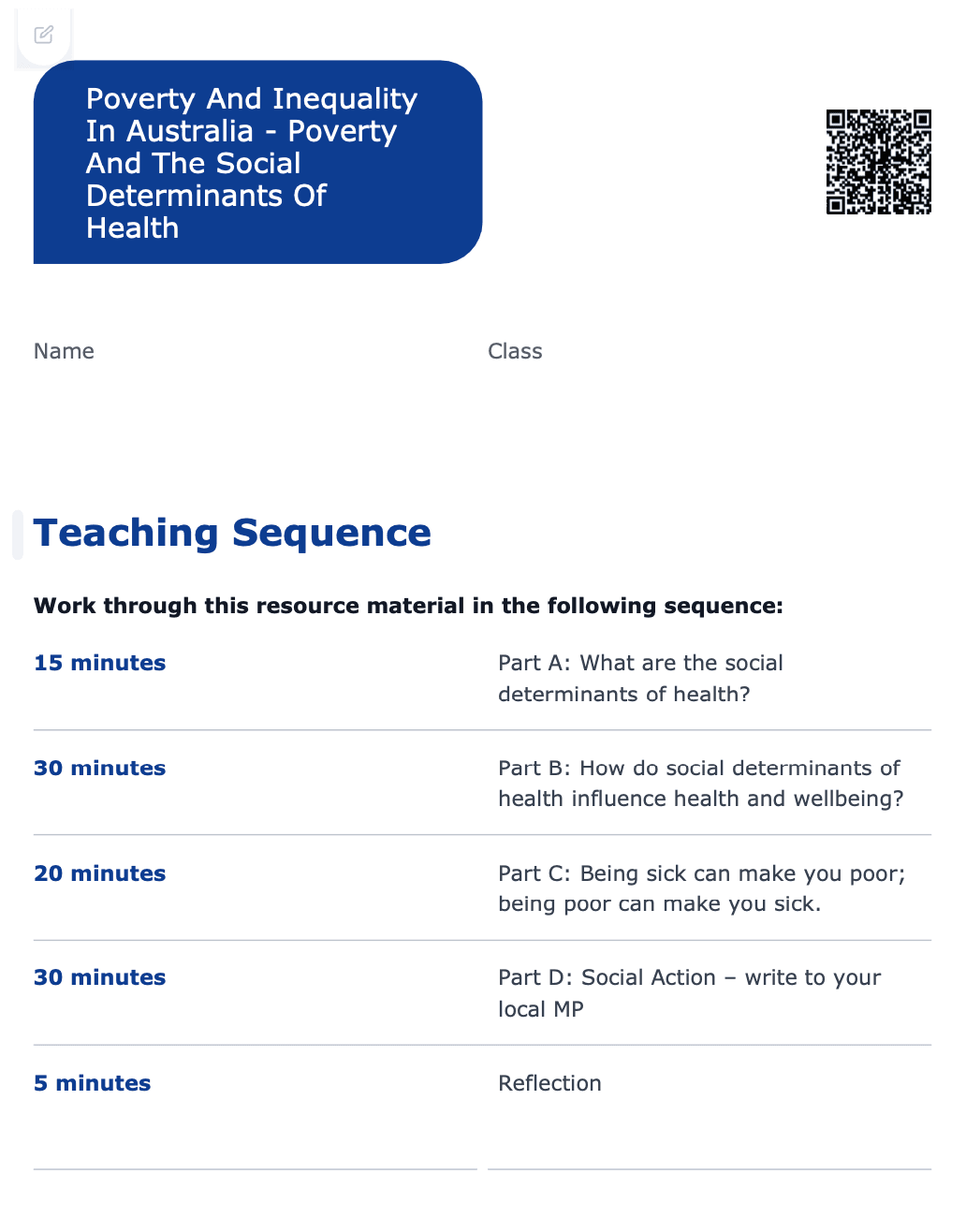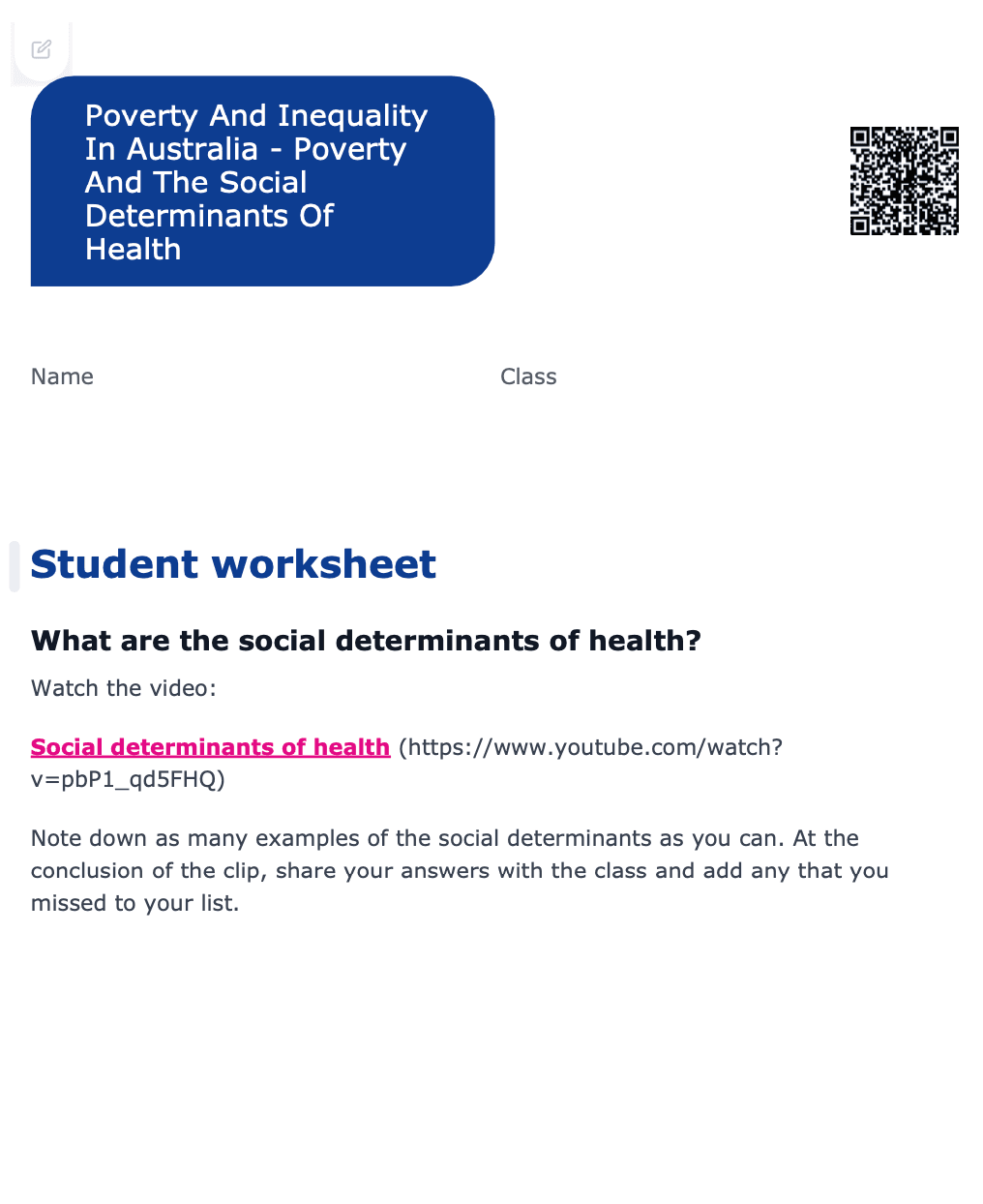
Poverty and Inequality in Australia - Poverty and the Social Determinants of Health
Lesson1 of 5 in this unit
SecondaryYear 7 - 8Health and Physical EducationHealthSocialEqualityHomelessnessHuman RightsSocial Action
Summary
Lesson Guides and Printables
Lesson Plan

Student Worksheet

Teacher Content Info
